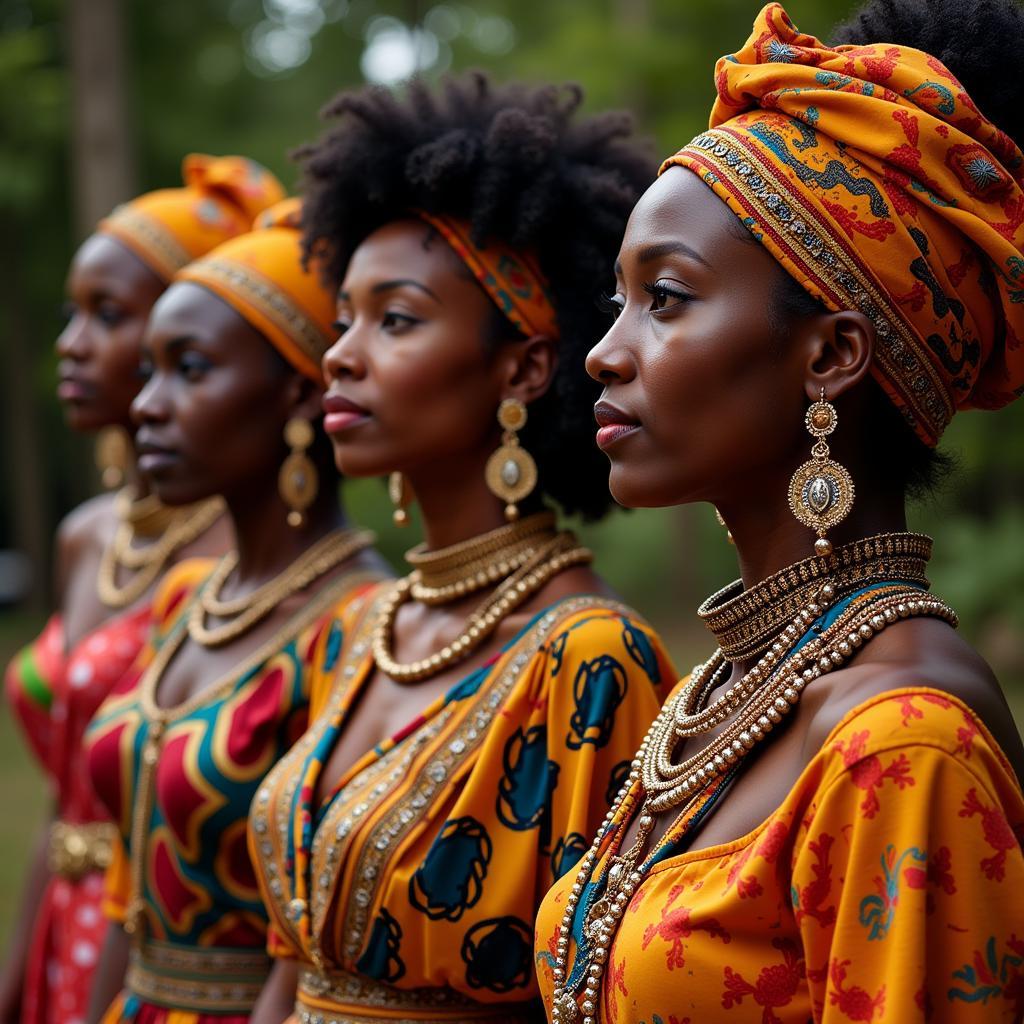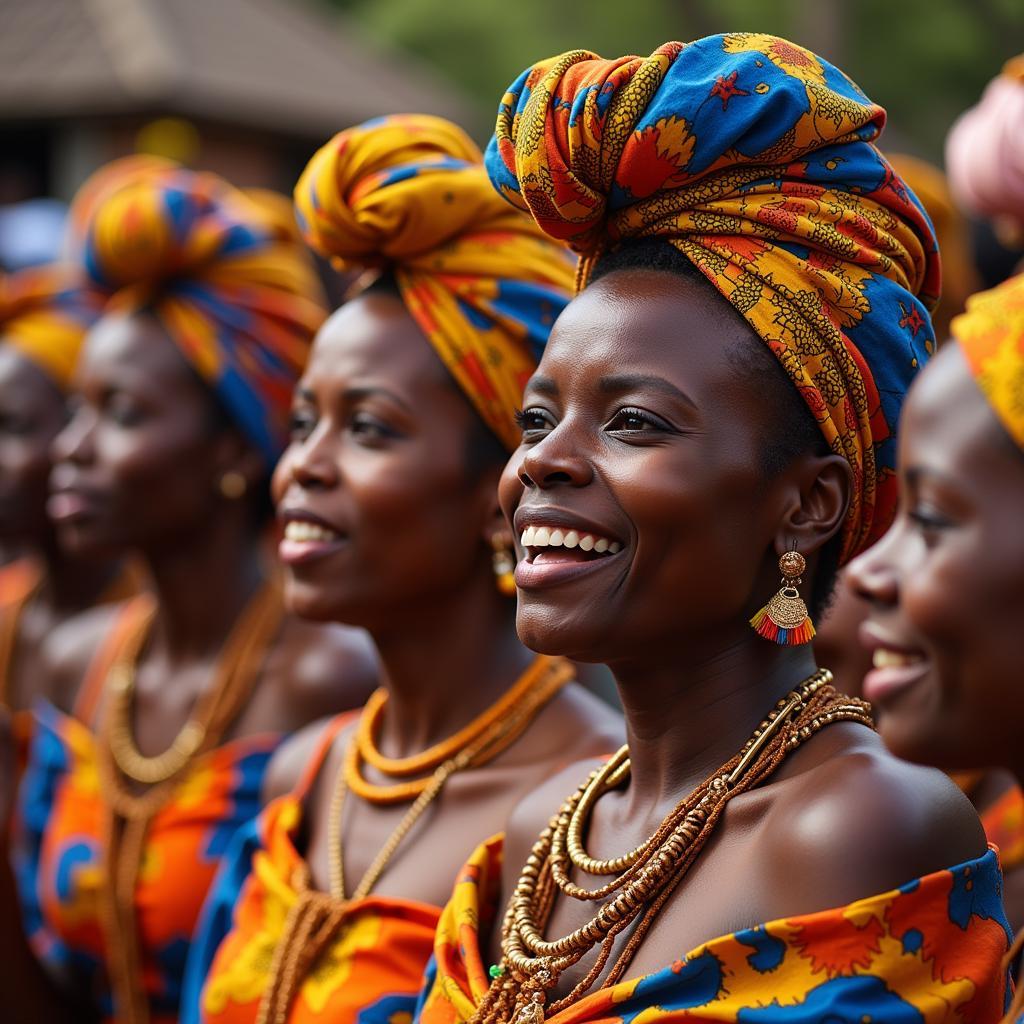Exploring the Rich Tradition of African Henna
African Henna, a timeless art form, has woven its way into the cultural fabric of numerous communities across the continent for centuries. More than just a decorative practice, African henna serves as a powerful symbol of identity, tradition, and celebration, carrying deep-rooted meanings that vary across different regions and ethnic groups. This article delves into the fascinating world of African henna, exploring its diverse forms, meanings, and significance in contemporary African Life.
The Cultural Significance of African Henna
Henna, derived from the Lawsonia inermis plant, has been utilized for body art and hair dye across Africa and beyond for thousands of years. In Africa, its use goes far beyond mere aesthetics. It is deeply intertwined with social customs, rites of passage, and spiritual beliefs. From weddings and births to festivals and funerals, African henna marks significant life events, acting as a visual language that communicates stories, beliefs, and cultural identity. For example, in some communities, intricate henna designs applied to a bride’s hands and feet symbolize fertility, good luck, and protection.
Check out these stunning african henna designs.
Beyond its ceremonial use, African henna also serves as a form of everyday adornment, particularly among women. The patterns, often inspired by nature, reflect the unique artistic sensibilities of different cultures. Common motifs include geometric shapes, floral designs, and representations of animals, each carrying symbolic weight and reflecting the individual’s connection to their community and heritage.
Diverse Styles and Techniques of African Henna
The art of African henna varies considerably across the continent, showcasing the diverse artistic traditions of different regions. From the bold, geometric patterns of North Africa to the intricate, lace-like designs of East Africa, each style possesses its own distinct character. In West Africa, elaborate henna designs often incorporate traditional symbols and motifs, reflecting the rich cultural heritage of the region. These variations in style aren’t just aesthetic choices; they often indicate different cultural affiliations, family lineages, and even social status.
The techniques employed in applying African henna also differ. While some cultures prefer fine lines and delicate details, others favor bolder, more graphic designs. The paste itself can vary in consistency and ingredients, often incorporating natural elements like herbs and essential oils believed to enhance the color and provide medicinal benefits. This attention to detail highlights the importance placed on the process of applying henna, which is often a communal activity, strengthening social bonds and passing down traditions through generations.
African Henna vs Indian Henna: Key Differences
While both African and Indian henna utilize the same plant base, Lawsonia inermis, there are key distinctions between the two traditions. Indian henna often features highly intricate, flowing paisley patterns and floral motifs, frequently covering large areas of the body, particularly the hands and feet. African henna vs indian henna offers a more in-depth comparison.
African henna, on the other hand, tends towards bolder, geometric designs, often incorporating symbolic representations specific to different cultures. The application area can also differ, with some African traditions focusing on smaller, more localized designs. Additionally, the ingredients added to the henna paste can vary significantly, reflecting the unique customs and beliefs of each region.
What is an African Henna Tattoo?
An african henna tattoo is a temporary form of body art created using henna paste. Unlike permanent tattoos, henna stains the skin, creating a design that lasts for several weeks before fading. The term “tattoo” is often used colloquially, but it’s important to remember that henna doesn’t penetrate the skin like a traditional tattoo. It’s a surface stain that gradually disappears as the skin exfoliates. This temporary nature allows individuals to experiment with different designs and celebrate specific occasions without a lifelong commitment.
Exploring African Henna Meanings
African henna meanings are diverse and often tied to specific cultural beliefs. Certain patterns represent protection, fertility, good luck, or spiritual connection. Understanding these meanings adds another layer of appreciation to the art form, revealing the rich symbolism embedded within each design. The meanings can be quite complex, varying not only between regions but also within specific communities, families, or even individuals. This complexity adds to the richness and depth of the tradition, demonstrating the powerful role henna plays in expressing cultural identity and individual stories.
Conclusion
African henna is more than just a decorative art form; it’s a living tradition that continues to thrive in the 21st century. Its intricate designs, rich symbolism, and deep cultural significance make it a powerful expression of African identity and heritage. From marking life’s milestones to adorning the body in everyday life, African henna remains a vital part of the cultural landscape, connecting generations and preserving the stories of countless communities. By exploring the diverse styles and meanings associated with African henna, we gain a deeper appreciation for the rich tapestry of African cultures and the enduring power of tradition.
FAQ
-
How long does African henna last? Typically, African henna lasts for several weeks, gradually fading as the skin exfoliates.
-
Is African henna painful? No, applying African henna is generally painless.
-
What are some common African henna designs? Common designs include geometric shapes, floral patterns, and animal representations.
-
What is the significance of African henna in weddings? Henna often symbolizes fertility, good luck, and protection for the bride.
-
How does African henna differ from other types of henna? African henna often incorporates distinct geometric patterns and symbolic representations specific to different cultures.
-
Can I apply African henna myself? Yes, but it takes practice to achieve intricate designs.
-
Where can I learn more about African henna meanings? Research online and explore books on African art and culture.
Other Questions We Often Receive
- What are the traditional ingredients used in African henna paste?
- How can I care for my African henna design to make it last longer?
- Are there any specific cultural taboos related to African henna?
Find More Information
Explore more about African culture on our website. We have articles on topics such as traditional African music, cuisine, and clothing.
Contact Us
When you need support please contact us by Phone: +255768904061, Email: [email protected] Or visit us at: Mbarali DC Mawindi, Kangaga, Tanzania. We have a 24/7 customer care team.


